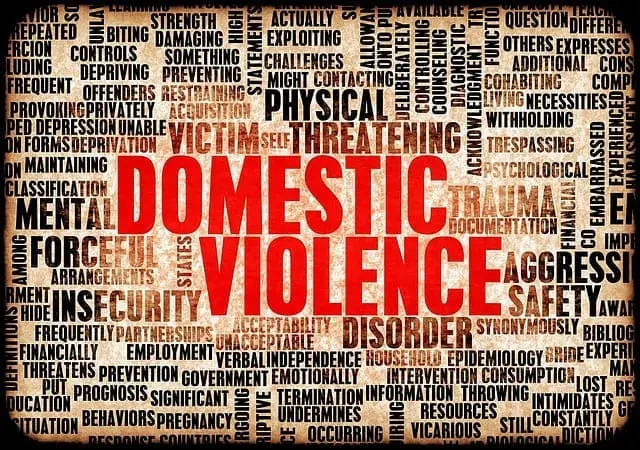
In the landscape of family law and criminal justice, bigamy emerges as a topic that intertwines legal, ethical, and cultural complexities. It is a term that often surfaces in discussions about marriage laws, immigration issues, and personal rights. Bigamy, defined as the act of entering into a marriage with one person while still legally married to another, is illegal in the majority of jurisdictions around the world.
The roots of laws against bigamy trace back to societal norms favoring monogamy and the legal complications that arise from having more than one spouse at the same time. In the United States, bigamy is criminalized under both state and federal laws, although the severity of the crime and its penalties vary from state to state. For instance, some states treat bigamy as a misdemeanor, while others classify it as a felony, with punishments ranging from fines to several years of imprisonment.
The legal implications of bigamy are far-reaching. It not only affects the individuals involved but also has broader ramifications on family structures, inheritance rights, and child custody matters. The second marriage in a bigamous relationship is generally considered void from the beginning, and as such, it does not bestow legal rights or responsibilities on the parties involved. However, the annulment of the second marriage can lead to complex legal disputes, especially when issues of property division or child custody emerge.
One of the most challenging aspects of prosecuting bigamy lies in proving the crime. The prosecution must establish that the accused was legally married to one person when they married another. Evidence often includes marriage certificates, tax records, and witness testimonies. In the age of global connectivity and cross-border relationships, proving bigamy can become even more complicated, especially when marriages occur in different countries with varying legal standards and documentation practices.
Bigamy also intersects with immigration laws. There have been instances where individuals commit bigamy as a means to circumvent immigration rules, leading to additional charges like immigration fraud. These cases highlight the need for robust legal frameworks that can address the complexities arising from the interplay of marriage laws and immigration policies.
The social and personal consequences of bigamy should not be understated. Beyond the legal penalties, individuals charged with or convicted of bigamy often face societal stigma and personal upheaval. Relationships may be strained or irreparably damaged, and professional reputations can suffer. Moreover, children born from bigamous relationships may face legal and social challenges, particularly regarding their status and rights.
In recent years, the discourse around bigamy has evolved, especially with changing societal attitudes towards marriage and relationships. While traditional views of marriage continue to influence laws against bigamy, there is a growing conversation about the rights of individuals in non-traditional relationships and the role of the state in regulating personal choices.
The next section of this article will explore the contemporary legal battles, cultural shifts, and personal narratives that surround the complex and often contentious issue of bigamy.
Bigamy in the Modern Era: Legal Challenges and Cultural Shifts
As society progresses, the legal battles and cultural narratives around bigamy continue to evolve, reflecting deeper questions about personal freedom, cultural norms, and legal boundaries. The issue of bigamy, while rooted in legal doctrine, opens up broader discussions about the nature of marriage, personal rights, and the extent of state intervention in private lives.
Contemporary legal battles over bigamy often revolve around the tension between upholding traditional marital norms and respecting individual autonomy. In some jurisdictions, the legal system grapples with cases that challenge the traditional definitions of marriage and seek to expand or reinterpret the legal understanding of bigamy. These cases often involve complex emotional and ethical considerations, especially when they intersect with issues of religious freedom, cultural practices, or the rights of individuals in non-traditional relationships.
Cultural shifts are also influencing how society views bigamy. With increasing global interconnectedness and the prevalence of diverse cultural practices, what constitutes acceptable marital practices is continually being reexamined. This is particularly relevant in multicultural societies where differing views on marriage coexist. The challenge for the legal system is to balance respect for cultural diversity with the enforcement of laws that are designed to protect individuals and maintain social order.
Personal narratives of those involved in bigamous relationships add a human dimension to the legal and ethical debates. These stories often reveal the complexities and emotional turmoil that accompany such relationships. They shed light on the reasons individuals may find themselves in bigamous situations, whether through intentional deception, cultural practices, or misunderstandings about the legal status of their previous marriage. These personal accounts are crucial in understanding the real-life implications of bigamy laws and in shaping more empathetic and nuanced legal responses.
In considering the future of bigamy laws, it’s evident that legal reforms and societal attitudes will need to evolve in tandem. As the definition of family and marriage continues to expand, the legal system may need to adapt to these changes, ensuring that laws are fair, equitable, and reflective of contemporary societal values. This could involve reexamining existing laws, considering exceptions under specific circumstances, or even redefining the legal concept of bigamy itself.
However, any legal reform must be approached with caution, ensuring that the rights and protections afforded by marriage laws are not undermined. The primary goal of bigamy laws – to prevent fraud, protect the rights of spouses, and uphold the legal sanctity of marriage – must remain at the forefront of any legal discussions or reforms.
In conclusion, bigamy remains a legally and culturally significant issue, encapsulating a range of societal, ethical, and legal challenges. As we move forward, the conversation around bigamy will likely continue to provoke debate and require thoughtful consideration from legal scholars, policymakers, and society at large.
For further exploration and a deeper understanding of bigamy, the following sources provide additional insights:
- Fuente: Understanding Bigamy in a Global Context – International Family Law Journal
- Fuente: The Legal Ramifications of Bigamy – American Bar Association
- Fuente: Personal Stories of Bigamy – Narrative Magazine
- Fuente: Cultural Perspectives on Bigamy – World Cultural Studies
These sources delve deeper into the legal, cultural, and personal aspects of bigamy, offering a comprehensive understanding of this complex issue.








